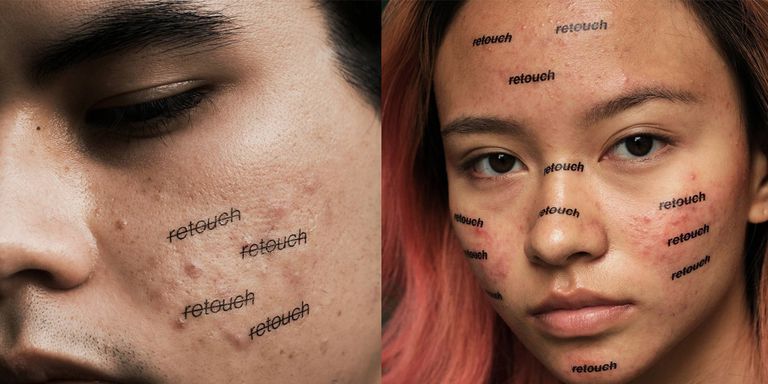Laura McDermott talks about the importance of reshaping traditional beauty standards, exploring some of the figures at the forefront.
Beauty standards have been an integrated part of nearly every culture for thousands of years. From Ancient Egypt to Greece, the Golden age of Hollywood to the postmodern beauty of today, it is a concept defined by the society it is manifested within, constantly evolving with cultural shifts. However, there is one element of beauty that remains consistent, the unattainability it often holds for the average woman or man. Ultimate beauty is often paralleled with perfection. Now, definitions of perfection often include phrases such as ‘faultless’ or ‘something that cannot be improved’, notions which to me reinforce the unattainability of beauty standards. Such depictions seem more prevalent now more than ever with the rise of certain social media platforms, such as Instagram, in which it is purely our physical appearance that is quantitatively valued by the number of likes one receives on a post. The detrimental effect that this is having on society, especially our youth is something that needs to change. I want to bring to your attention three truly amazing individuals, each tackling completely different elements, but all are using social media platforms positively, to aid their pioneering attempts to reshape and redefine what we as a society perceive to be beautiful.
Winnie Harlow – Model and Activist
@winneharlow

Winnie Harlow is a 23-year-old model and activist. She has a skin condition known as vitiligo which is characterised by patches of skin losing pigmentation. Harlow has taken to Instagram recently to voice frustrations of tabloid articles mislabelling her condition. She explained, “I’m not a ‘Vitiligo Sufferer’. I’m not a ‘Vitiligo Model’, I am Winnie”, going on to state “I’m SUCCEEDING at showing people that their differences don’t make them WHO they are”.
In her 2014 Ted Talk, Harlow talks about how her experiences of alienation as a child have brought her to a place where she sees “beauty in everything” and the importance of creating your own mould. Harlow actively uses her position of power to redefine the beauty standards set for us.
Peter DeVito – Photographer
@peterdevito

DeVito’s photography has recently gained a lot of attention, with one particular article in i-D focusing on his approach to skin imperfections. At only 20 years of age, DeVito is a leading figuring in the online campaign to normalise acne and other skin conditions. Through his photography he aims to normalise spots and other skin blemishes, helping young people especially to realise that it isn’t something that we should be ashamed of. The editing and retouching of nearly every fashion picture we see reinforces this image of flawless skin, yet DeVito emphasises the point that we nearly all experience acne at one point or another throughout our lives, it is not something that we should perceive as ugly.
Sophia Hadjipanteli – Model
@sophiahadjipanteli

Sophia Hadjipanteli is a 21-year-old, Greek Cypriot model who in her own words has ‘one brow to rule them all’. She is leading the #UnibrowMovement on Instagram and creating a space outside of societal demands for beauty that is not conventional. Of the three activists I have mentioned, Hadjipanteli arguably gets the most online hate, which she responds to perfectly. The model is successfully normalising something she sees as a pressure that society puts on women, to fix or hide their facial hair.
Why is all this important? The reasons may seem obvious but I believe they are often forgotten in the chaos of everyday life. With more young teenagers using Instagram as a method of gaining societies approval for how they look now more than ever before, redefining such concepts of beauty is crucial. In an age where self-value and love are often perceived as arrogant, we must strive to change societal perceptions of such notions in order to remove regressive feelings like self-doubt and beliefs that we are may not be enough. The significance of appreciating our own body and mind is second-to-none with regards to creating a healthy and flourishing headspace. Which in turn allows us to lead happier and more fulfilled lives.
We should teach children from a young age that this is beauty. We should teach young girls that it is not their physical appearance that gives them value. We should teach young boys that they are beautiful in their femininity as well as their masculinity. We should teach everyone that regardless of their acne, or body hair or skin colour that they are beautiful.
In the meantime, if physical beauty is always going to be something valued within our society, for whatever evolutionary or social purpose it may hold, we should create and sustain ideas surrounding healthiness and uniqueness. We should envisage beauty as something attainable. We are undoubtedly beautiful in our imperfections, our differences, and our individuality. In our humanity. What a boring and brutal world it would be if we all met the standards of beauty enforced upon us.
Laura McDermott
Images: Cosmopolitan, Famous Birthdays

